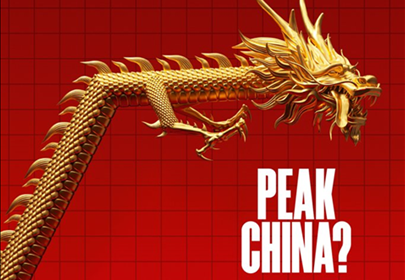Joseph S. Nye, Professor, Harvard University
Dec 14, 2023
The great-power competition between the United States and China is a defining feature of the first part of this century, but there is little agreement on how it should be characterized. Some call it an “enduring rivalry” analogous to the one between Germany and Britain prior to the last century’s two world wars. Others worry that America and China are like Sparta (the dominant power) and Athens (the rising power) in the fifth century BC: “destined for war.” The problem, of course, is that a belief in the inevitability of conflict can become a self-fulfilling prophecy.
Xiao Bin, Deputy Secretary-general, Center for Shanghai Cooperation Organization Studies, Chinese Association of Social Sciences
Dec 01, 2023
In the competition between major powers, rational ones will choose strategies to protect their own interests. Irrational ones are likely to fall into a trap laid by rivals in which the cost of influence in underdeveloped regions becomes overbearing and results in retreat.

Zhao Minghao, Professor, Institute of International Studies, Fudan University, and China Forum Expert.
Sep 22, 2023
Judging from a lengthy slate of indicators, discounting China’s position in the world economy over a momentary economic slowdown would be a mistake. Failing to understand China’s recent progress and future ambitions could lead the United States to squander its own long-term advantages.
Xiao Bin, Deputy Secretary-general, Center for Shanghai Cooperation Organization Studies, Chinese Association of Social Sciences
Sep 08, 2023
The personal tragedies of two great physicists during the Cold War teach that us that creating a tolerant, innovative environment is the way to prosperity and strength.
Vasilis Trigkas, Visiting Assistant Professor, Schwarzman College, Tsinghua University
Jul 26, 2023
Excessive Sino-American rivalry could be averted if strategists from the U.S. and China make rational assessments about the other side’s capabilities and limits - and can restrain themselves from pouncing on misperceived weaknesses.

Leonardo Dinic, Advisor to the CroAsia Institute
Jul 04, 2023
The exit of Western producers from Russia led to China's increased presence in Europe, with significant benefits for Chinese manufacturers and oil companies but also raises concerns about geopolitical implications. China's expansion and the recent rise of India as an oil exporter has led to consequences for European energy security and the global economy.
Chen Jimin, Guest Researcher, Center for Peace and Development Studies, China Association for International Friendly Contact
Jun 21, 2023
Building a new type of major country relationship with the United States has been the consistent goal. Yet this cannot be achieved through the efforts of China alone. It requires both sides to pull in the same direction. Where relations go next depends on the strategic choices of both countries.
Yan Xuetong, Distinguished Professor, Tsinghua University
May 16, 2023
The Indo-Pacific Economic Framework adopted by the United States last year has led to a shift in the way East Asian countries perceive their relations with the world’s two great powers. The notion of reliance on China for economics and on the U.S. for security has begun to tilt westward.
Jade Wong, Senior Fellow, Gordon & Leon Institute
May 04, 2023
Chinese President Xi Jinping’s outreach to the president of Ukraine, Volodymyr Zelenskyy, could be a game-changer. The call was welcomed by Zelenskyy, who called it “long and meaningful.” As Beijing steps into its role as a global peacemaker, the world is taking notice.
Xiao Bin, Deputy Secretary-general, Center for Shanghai Cooperation Organization Studies, Chinese Association of Social Sciences
Apr 28, 2023
The deepened military relations between China and Russia was inevitable in response to challenges from the West. Conflict does not arise simply over current security considerations. It may be triggered by concerns over the changing international balance of power.